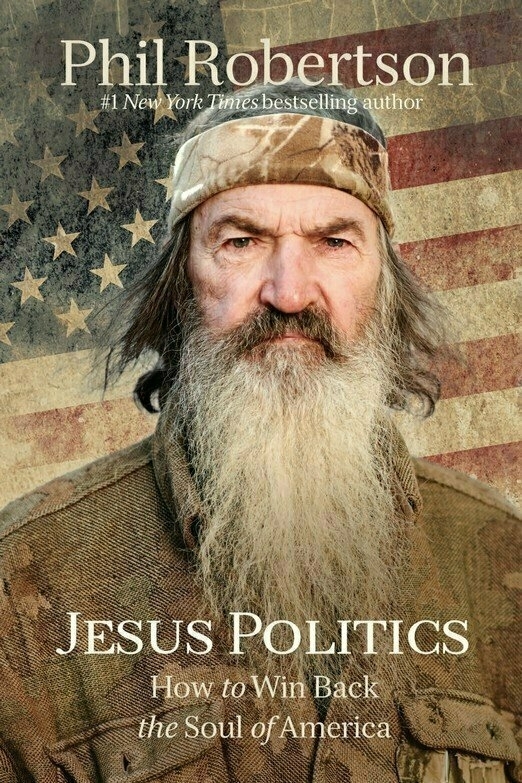Category: politics
You are viewing all posts from this category, beginning with the most recent.
Eerie Parallels
Last night I started reading Dr. Susannah Heschel’s The Aryan Jesus: Christian Theologians and the Bible in Nazi Germany. Having not gotten any further than the introduction there are eerie parallels between the support the German church gave to Nazism and the support the American evangelical church is giving to the MAGA movement. A few samples:
The German Christian movement was faction within the Protestant church of Germany, not a separate sect, and eventually attracted between a quarter and a third of Protestant church members. Enthusiastically pro-Nazi, the movement sought to demonstrate its support for Hitler by organizing itself after the model of the Nazi Party, placing a swastika on the altar next to the cross, giving the Nazi salute at its rallies, and celebrating Hitler as sent by God.

The three ideological prongs of the German Christian movement within the Protestant church, as Doris Bergen has delineated, were its opposition to church doctrine, its antisemitism, and its effort to craft a “manly” church…
German Christians appropriated Nazi rhetoric and symbols into the church to give its Christianity a contemporary resonance.

Theological conclusions regarding Jesus’s teachings and his interactions with the Jews of his day were shaped into a rhetoric that endorsed Nazi ideology, making Nazism appear to be realizing in the political sphere what Christians taught in the religious sphere.

On to chapter 1….
Thoughts upon Rush Limbaugh's passing
Rush Limbaugh passed away today at age 70.
I spent countless hours listening to his radio show as a pre-teen, teenager, and into early adulthood, largely absorbing both his Republican political views and his cruel, snarky attitude toward those who disagreed with him. I tried calling in to the show on multiple occasions. (I remember getting through to the call screener once, but never got on the air.) I recorded some of the political spoof songs he played and memorized the lyrics because I thought they were funny. (The spoof of “Bette Davis Eyes” as “Billy Clinton Thighs” to commemorate the jogging President’s short shorts is still in my head today.) I laughed as he called people names and ridiculed people who weren’t like him: Democrats, environmentalists, feminists, immigrants, LTBTQIA people…
Rush made it easy to dismiss people who disagreed with you, and made sure you knew who those people were. I carried those views and attitudes well into adulthood. If you search back far enough you will find posts on my blog here that reflect that sort of snarky and uncaring attitude toward political opponents. I’ve spent the last decade or more regretting and repenting of those words, actions, and attitudes.
Rush caused a lot of people a lot of pain over his lifetime in talk radio. I am glad that his passing means he will stop causing people more pain. Sadly, the effects will linger far longer than his voice did on the radio waves. He had a massive amount of talent and opportunity to do a lot of good for a lot of people. It’s sad that he chose not to.
I’ve seen a lot of understandable pain and bitterness on Twitter this afternoon as people react to Rush’s passing. I don’t want to criticize those reactions. Pain has to be acknowledged to be worked through. I’ve seen a lot of comments about Rush now in eternity finding out how wrong he was and some sense of justice that he might be in hell. I get it. I do.
But I can’t gloat in his passing, and I can’t hope for his eternal torment. Rush was a human created in God’s image the same as everyone else, and he deserves that respect even if he refused it to others.
I’m hopeful of some sort of universal reconciliation through Christ. I know you can interpret the Bible to say otherwise, but after a decade of reading on the topic that’s where I land today. Does my sense of justice think Rush deserves punishment? Yep. But if I can hope for something more beautiful, it’s for a bitter old man with a lifetime of hate coming to sorrowful repentance and being eternally reconciled to Democrats, feminists, immigrants, gays, lesbians, transsexuals, and everyone else he hurt through the transforming love of God.
It feels wrong somehow to say “rest in peace” for a guy who caused so much discord. Maybe instead I can wish that he will rest in a discomfort that will lead to repentance and eternal reconciliation. Then I can pray for and work toward healing for those he hurt.
All this is from God, who reconciled us to himself through Christ, and has given us the ministry of reconciliation; that is, in Christ God was reconciling the world to himself, not counting their trespasses against them, and entrusting the message of reconciliation to us. So we are ambassadors for Christ, since God is making his appeal through us; we entreat you on behalf of Christ, be reconciled to God.
2 Corinthians 5:18-20, NRSV
July 4, 2020
America’s Independence Day seems a strange holiday to “celebrate” this year. Our country is in turmoil with racial protests in cities both large and small. Our government’s mismanagement of the COVID-19 pandemic has left our country first meriting the world’s scorn and eventually its pity. Our people are so polarized that even wearing a mask is viewed as a political statement.
Yesterday President Trump gave a speech in front of Mount Rushmore, a site where white Americans literally engraved their political heroes on top of the sacred hills of the Native Americans they displaced. In his speech he declared that this summer’s protestors - a group that includes me - are a “dangerous movement”, a “radical assault”, “far-left fascism”, a “left-wing cultural revolution designed to overthrow the American Revolution”, resulting in “the very definition of totalitarianism”.
Me? I’d just like to see some responsible leadership. I’d like to not have black people get killed by police at ridiculous rates. I‘d like to have more white people like me start coming to grips with how recent (and current) our racist systems were and still are. And I’d like us to start changing those systems.
My Christian faith should be common ground even with those who see politics very differently. Yet this year there are so many, especially among the white evangelical group, who don’t even seem to share a common reality. Inconvenient facts are “fake news”. Any wrong that the President does is either overblown by the media or justifiable. (The ends are what are important, right?)
How can you sit quietly to maintain the perception of unity in the fellowship when it requires you to not talk about applying your faith to current events?
That thing where Jesus said he would set brother against brother seems a lot more real when your brother is so frustrated with your application of faith to your politics that he isn’t talking to you. But then I wonder whether he’s quoting the same verse thinking about me. And I wonder how we ever get past it.
There is no city fireworks display this year and I’m finding no joy in the neighbors’ best attempts to make up for it. Not so many Independence Days ago I would drag the kids out into the oppressive humidity and battle mosquitos just so we could enjoy the fireworks with oohs and awe. Tonight the explosions just bring acrid smoke and unwelcome noise late into the tired night.
What will next year’s celebration look like? What will we be celebrating? Will we be any less tired? Any more hopeful?
Too long have I had my dwelling among those who hate peace. I am for peace; but when I speak, they are for war.
Recommended daily reading: Heather Cox Richardson's Letters from an American
In these turbulent days the news can quickly become overwhelming, and the social media noise can quickly drown out the worthwhile signal. One bit of regular news writing I’ve found very helpful, though is a daily email newsletter from historian Heather Cox Richardson. Dr. Richardson has a Ph.D. from Harvard and is currently a professor of history at Boston College.
Dr. Richardson’s email newsletter, titled “Letters from an American”, comes out nightly and usually summarizes the day’s key events. She provides an historian’s perspective on what she believes is long-term important out of the day’s news rather than what just made the most noise. I particularly appreciate that she provides sources for her story at the bottom of every post. Some days she’ll take a longer view and help set this day’s events in context. In that vein I’d particularly recommend her May 3 post tracing the history of the 20th century American rhetoric of patriotic individualism.
If you’re looking for some daily summary reading, I’d recommend giving Letters from an American a try. It’s a free newsletter, and easy to sign up!

An Iowan's thoughts the morning after the 2020 Caucus
Last night I and thousands of Iowans like me participated in the Democratic Party caucus. After three chaotic years of a Trump presidency and more than a year of non-stop campaigning in our state, it felt good to get on with things. Regardless of the result, we know the ads will stop for at least a few months now.
My caucus experience was pretty low key and without major hassles or snafus.
Late last night, though, the reports started rolling in that there are hiccups in the party reporting. As I write this at 6:30 the morning after, there are still no results reported. Half of the candidates have declared victory (or at least success), Republican operatives are spinning claims of fraud and manipulation, and once again Iowa looks like a bunch of rubes who can’t even figure out how to tabulate votes.
So, a few thoughts on Tuesday morning:
This is ridiculous. Campaigns and volunteers have spent countless hours and dollars here over the past year to court our first-in-the-nation voters, and we can’t even get an accurate count at the end of the night? The caucus format is quaint (or, as a Canadian friend said, “quirky”), but if in 2020 we can’t even manage to report up simple voter counts, some other state should be going first.
We will get reliable results eventually. I have no doubt that the votes were carefully tabulated at my caucus site, and that they have a paper trail of every ballot preference card that was filled out. The volunteers running the caucus worked diligently to get an accurate count. Surely a similar scenario played out at each other caucus site through the evening. The data is available and reliable.
This is not an election and isn’t run by our election staff. This point can easily be missed in this morning’s reporting chaos. Normal elections in Iowa are overseen by the Iowa Secretary of State, and run in each county by the County Auditor. When we have the actual November election, each voter will fill out a paper ballot and feed it into a scanning machine with a locked collection bin. An electronic count is available almost immediately with paper backups in case a recount is needed. It’s a reliable system. That system was NOT used last night. Last night’s caucuses were run and results tabulated by volunteers from the political parties. They only do this once every four years. It shows.
This is a system ripe for change. The election cycle is far too long. The caucus system is antiquated. Iowa has no particular business being the first in the nation. Let’s try shortening campaign windows. Let’s have just a handful of primary election days on the schedule, with multiple states participating each time. Let’s have ranked choice voting. (Oh, let’s also make sure everyone has access to vote and encourage as much voting participation as we can.) We can do better.

Time to weed out some candidates
I’ve spent a few hours now sitting down with my 13-year-old daughter to watch the two nights of Democratic debates. (Yay for a kid who is interested in politics!) And while it was interesting to see 20 people on stage, it’s definitely time to weed some candidates out.
Can we continue the race with just Elizabeth Warren, Kamala Harris, Cory Booker, Pete Buttigieg, and Julian Castro?
The other folks are mostly nice and all, but clearly don’t have what it’s going to take to lead a national campaign that can win. Sure, Biden and Bernie are polling well, but they’re so obviously old. It’s time for some younger candidates. (And yes, Elizabeth Warren is 70, and somehow I’m calling her a “younger” candidate.)
In the end of it all, at this moment my heart is with a Harris/Buttigieg ticket, with them finding some special policy czar spot for Elizabeth Warren. But it’s still a long way until the Iowa Caucuses.
(For the record, my daughter declares her preferred candidates are Warren, Harris, Booker, Biden, and Buttigieg, and that she’s disappointed she isn’t old enough to vote in this election. )
These Democrats Should Run for Senate instead of President in 2020
With today’s announcement by Montana governor Steve Bullock that he is throwing his hat in the ring for the 2020 Democratic presidential nomination, we now have 23 nationally recognized candidates running. With the field wide open and a troubled incumbent, this is to an extent understandable.
However, (and I’m by no means the first to observe this,) if the Democrats want to make lasting changes to the direction Trump and McConnell have taken the country since 2016, they need not only the White House - they need a Senate majority. So, here’s my run-down of the current presidential candidates and where I think they should be running for Senate instead. (Candidates listed alphabetically, direct from the relevant Wikipedia article.)
Michael Bennet - Bennet is currently a Democratic senator from Colorado, and his term doesn’t expire until 2022. He isn’t hurting the Dems’ chances at the Senate by running.
Joe Biden - While Biden had a long and distinguished career in the Senate, he’s not likely to run again after serving as VP for two terms. And Delaware’s two senators are already Democrats. Joe can stay in.
Cory Booker - Booker’s Senate term is up in 2020. Somebody’s gonna have to fill that hole. My 10-second Google search didn’t turn up anybody announced yet to run to fill his spot, but New Jersey is a fairly safe state for Democrats, seeing as they keep re-electing even the highly corrupt Bob Menendez.
Steve Bullock - Bullock is touting his ability to have won statewide office in a majority Republican state as a qualification for his presidential campaign. But Montana has a Republican senator up for re-election in 2020, and if Bullock really has such skills, he should turn them toward defeating Steve Daines to turn the second Montana Senate seat blue.
Pete Buttigieg - Mayor Pete might be at some point a worthy Democratic Senate candidate from Indiana. However, Indiana doesn’t have a Senate seat up in 2020. Mayor Pete can keep running. He might make somebody a good Vice President.
Julián Castro - Castro would need to do a little bit of coordinating here with Beto O’Rourke. Both are from Texas, and Texas has a Senate seat up in 2020. O’Rourke almost knocked off Ted Cruz in 2018; Castro could surely put up a strong state-wide campaign if he took up the torch. One of these guys should be challenging John Cornyn next year.
John Delaney - Who is this guy again? Maryland already has two Democratic senators and neither are up for re-election in 2020. Delaney is welcome to keep tilting at windmills as long as his funding holds out.
Tulsi Gabbard - In pretty much the same spot as Delaney. She’s not going to challenge one of Hawaii’s existing Democratic senators, so why not run for President?
Kirsten Gillibrand - Gillibrand is already a Senator and just got re-elected in 2018. If she doesn’t take the White House, she’ll stay in the Capitol. No impact.
Mike Gravel - LOL.
Kamala Harris - Harris has two years left on her term in the Senate, so she’s safe either way.
John Hickenlooper - Here’s another guy who should reconsider. Cory Gardner (who I always seem to get confused with Cory Booker for some reason) is up for re-election in 2020. Hickenlooper has been popular as a governor in Colorado. If he could oust Gardner that’d turn another Senate seat blue. It’d be worth a shot.
Jay Inslee - Inslee is currently Governor of Washington, a state that already has two Democratic senators. No harm in him running.
Amy Klobuchar - Klobuchar just won re-election to the Senate in 2018 so she’s safe either way. Fortunately for her it’s almost done snowing in Minnesota for the season, so her campaigning will get a little bit easier.
Wayne Messam - If you’re saying “who is that again?”, a reminder that Messam is currently the mayor of Miramar, Florida. Which, to be fair I guess, is about the same size as South Bend, Indiana. Florida doesn’t have any Senate seats up in 2020, though.
Seth Moulton - I had to look this guy up to remember who he is. (He’s a member of the House from Massachusetts.) Ed Markey is up for re-election in Massachusetts but surely he’ll run again, so Moulton is left out in the cold.
Beto O’Rourke - As I wrote above, he’s gotta get w/ Julián Castro and figure out which one of them is gonna take out John Cornyn.
Tim Ryan - No Senate seats open in Ohio in 2020, so Ryan can be another nondescript white Midwestern guy running for President.
Bernie Sanders - Bernie just won re-election in 2018. His seat is safe until old age catches up with him.
Eric Swalwell - Again, who? Another non-descript Midwestern boy (he was born in Iowa, even if he’s currently a Californian) who doesn’t have a Senate seat to run for.
Elizabeth Warren - Just won re-election in Massachusetts in 2018.
Marianne Williamson - LOL. (From California. See Swalwell above.)
Andrew Yang - Also LOL. From New York. Not gonna challenge Schumer or Gillibrand even if they were up in 2020.
So, let’s review.
Which Democrats should run for Senate instead of President? Bullock in Montana. Castro or O’Rourke in Texas. Hickenlooper in Colorado. Then Stacey Abrams should challenge Perdue in Georgia.
Then we need a strong Democrat to run against Joni Ernst in Iowa, but the Iowa Democrats haven’t managed to field a strong candidate for anything in a while. (J. D. Scholten might have a better luck running state-wide against Ernst than he did running against Steve King for the House…)
And can North Carolina get enough voting rights back to unseat Thom Tillis? They get to undo some gerrymanders but that won’t affect a statewide race like the Senate.
In short: there are some opportunities for Democrats to make gains and possibly take an outright majority in the Senate in 2020. But they need to spend their energy running for those seats instead of having all their strong candidates running in a giant knock-out race for President. If 2020 is really about our Republic’s survival after four years of Trump and McConnell destroying all governing norms, Democrats need to treat it that way and make a cooperative concerted effort to win both the White House and the Senate.
At least a guy can dream, right?
DBH: Can we relax about "socialism"?
David Bentley Hart reworks his Facebook post from last year (which I posted about at the time) into a New York Times opinion piece. It’s still sharp and incisive in all the best ways. A snippet or two:
I have lived abroad often enough to be conscious of the flaws in various nations’ social democratic systems. But I know too that those systems usually make possible something closer to a just and charitable society than ours has ever been.
One need not idealize any of these nations or ignore the ways in which they differ in balancing public and private financing of civic services. But all of them are, broadly speaking, places where — without any unsustainable burden on the national economy — the cost of health care per capita is far lower than it is here and yet coverage is universal, where life spans are longer, where working people are not made destitute by serious illnesses, where a choice between food or pharmaceuticals need never be made, where the poor cannot be denied treatments by insurance adjusters, where pre-existing health conditions could never be denied coverage, where most people have far more savings and much lower levels of debt than is the case here, where very few families live only a paycheck away from total poverty, where wages generally keep pace with inflation, where every worker has decent vacation time each year, where suicide and opioid addiction are not the default lifestyle of the working poor, where homelessness is exceedingly rare, where retirement care is humane and comprehensive and where the schools are immeasurably better than ours are.
Americans, however, recoil in horror from these intolerable impositions on personal liberty.
Brutal.
Democracy for Republicans
There’s a really good essay by Jacob T. Levy (Professor of Political Theory at McGill University) over at the Niskanen Center today in which he argues that the Republican Party needs to renew its commitment to democracy. “One sign of seriousness” of a post-Trump Republican Party, says Levy, “would be a commitment to building a Republican Party that can win free and fair elections, a Republican Party whose strategy rests on appealing to pluralities or majorities and that can embrace more voters rather than fewer.”
Levy goes on to document how over the past 30 years, both at the federal and state level, Republicans have frequently failed to win a plurality of the popular vote and yet still have held majorities in legislative bodies. The Republican Party, says Levy,
…is now the beneficiary of all the countermajoritarian mechanisms that make it difficult to translate voting pluralities or majorities into electoral wins, including those that were deliberate creations of constitutional design, those that evolved more or less accidentally, and those that were opportunistically engineered in recent decades. It is moreover the beneficiary of actions that selectively suppress voter turnout and eligibility to vote. Democrats more often than not command popular-vote pluralities even though many Democratic-leaning voters are discouraged or prohibited from getting to the ballot box at all.
Levy argues that the longstanding conservative suspicion of majoritarian democracy is based more on the Founders’ understanding of classical, zero-sum Roman economic precedents, and that such a system is poorly equipped to handle modern commercial capitalism. And while that conservative suspicion is often justified by an argument that the mob will just vote for socialism to line their own pocketbook (as if the elites aren’t also voting for their pocketbooks?), Levy argues that position is unjustified by history.
While there have been deeply despotic socialist regimes in modernity, these have almost never come about through the domestic subversion of democratic governments; they have been imposed by external military domination or else have replaced domestic oligarchic autocracies of one type or another. The fear of the redistributionist mob exercises a powerful hold on the conservative imagination, and has often served as an excuse for repression and constitutional violation. But we should understand that excuse as an excuse.
It’s a long essay and worth reading in its entirety. While I’m not personally likely to support most of the Republican Party ideals regardless of their political strategy, I’m fully on board w/ Levy’s conclusion:
It would be good, in other words, to have a competition in the direction of freer, fairer, and more open-access elections, with competing ideas about what that means and what to prioritize. That’s compatible with making an issue out of instances of Democratic misconduct that themselves call for future-oriented, general, rule-governed remedies. But it means not an agenda based on fake panic about nonexistent undocumented-immigrant voting or almost nonexistent voter fraud, not an agenda about dressing up restriction as reform. I am not sure that there are currently any powerful Republicans who are willing to try to take part in those debates, Republicans who are willing to embrace the goal of building a party that can win pluralities and majorities of freer and more open elections. I am sure that it will be a good sign when there are.
A passion for Jesus and for justice
Justice is inherent in justification.
This understanding of justification will have enormous effects on the church’s understanding of mission. Like Paul, the church that lives by this account of justification will not merely be trying to “save souls” but will want to be God’s agent in the creation of a justified and just people - transformed and participating in Christ and his current work in and through the church.
Evangelism - sharing the good news - will be a message about liberation from all sorts of sin, including hatred and violence and injustice, and into a new life. Centrifugal activity, or outreach - embodying the good news in the public square - will mean siding with those who are neglected and mistreated, whether in the neighborhood or in another part of the world. In fact, the differences between terms like “evangelism” and “outreach” will in part collapse, not because Jesus is being replaced with justice, understood in some generic, secular way, but because Jesus is justice, the justice of God incarnate. The result will be a deeper spirituality, not a lesser one, a closer walk with God (the God of justice), not a more distant one. In fact, the result will be a passion for Jesus and for justice.
-- Michael J. Gorman, from Becoming the Gospel: Paul, Participation, and Mission